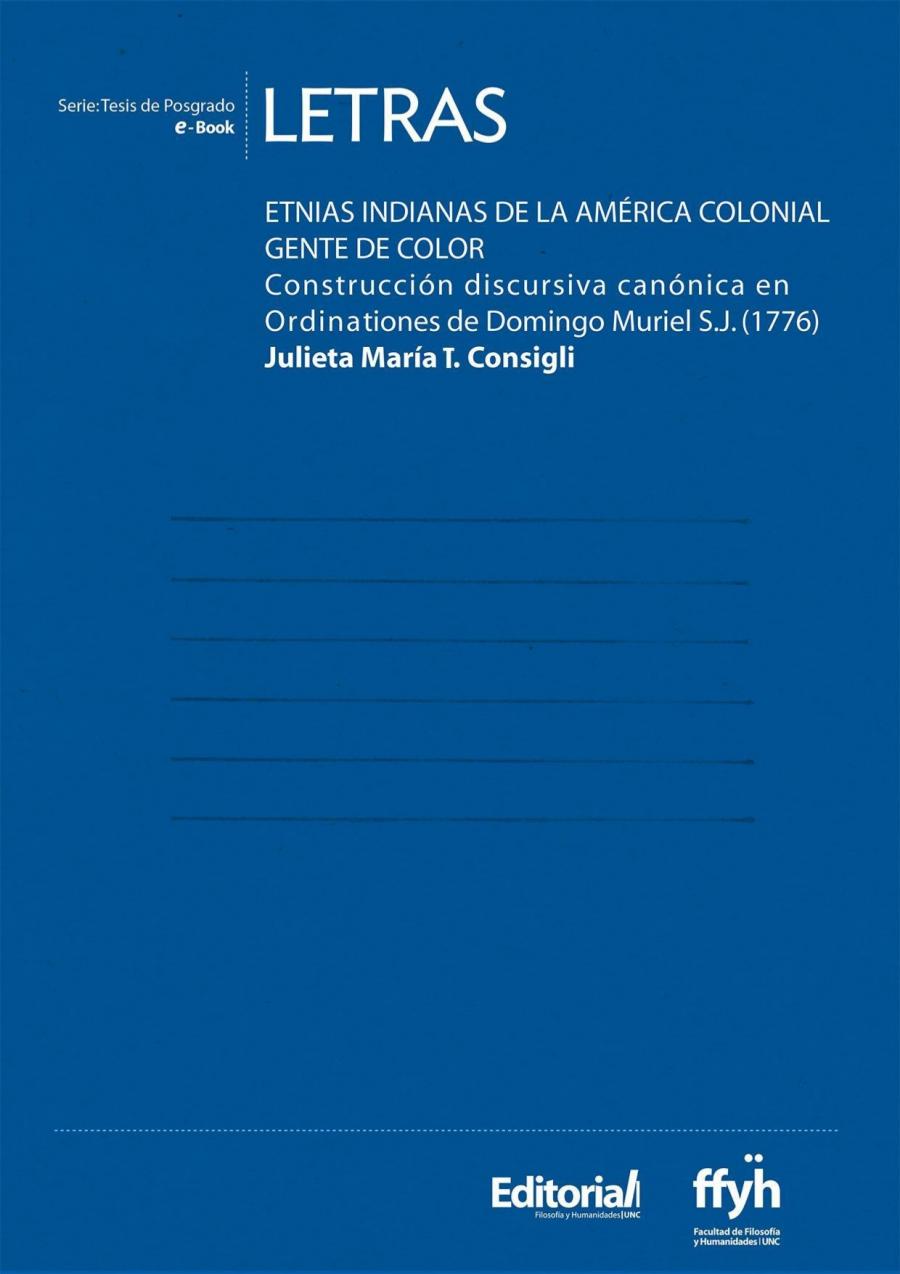Indian ethnic groups in colonial America People of color: canonical discursive construction in Ordinationes by Domingo Muriel S.J (1776)
Keywords:
colonial studies, neo-Latin literature, jesuit production, studies of mentalitiesSynopsis
This work, which falls within the field of “Colonial Studies and Neo-Latin Literature” and “Studies of Mentalities,” focuses on one of the works of Father Domingo Muriel and aims to contribute to Jesuit production and the area of ancient collections. The first part addresses the problem of the discursive construction of certain selected passages from the Fastos and the typological analysis of the main American racial groups, which sheds light on the theme of Indian ethnic groups and the social and religious exclusion-inclusion of Indians, mixed-race people, and particularly Black people, as the central focus of the thesis. The consideration of “people of color” in their various classifications is the basic substrate for understanding the canonical legislation that, together with royal law and social practices, largely defines the New World. The text of the Fastos combines theoretical and rhetorical aspects (typical of the 18th century) that demonstrate the author's effort to reorganize a vast amount of geographical, scientific, and ethnographic material in order to also organize a reality and configure it discursively to position it as a cultural fact that had to be legislated, evangelized, and socialized.
The second part offers the first complete Spanish translation of the selected excerpts, which corresponds to the facsimile copy of the original printed text, followed by the list of authors and the frequency of terminology.

Downloads
Published
Categories
License

This work is licensed under a Creative Commons Attribution-NonCommercial-ShareAlike 4.0 International License.


